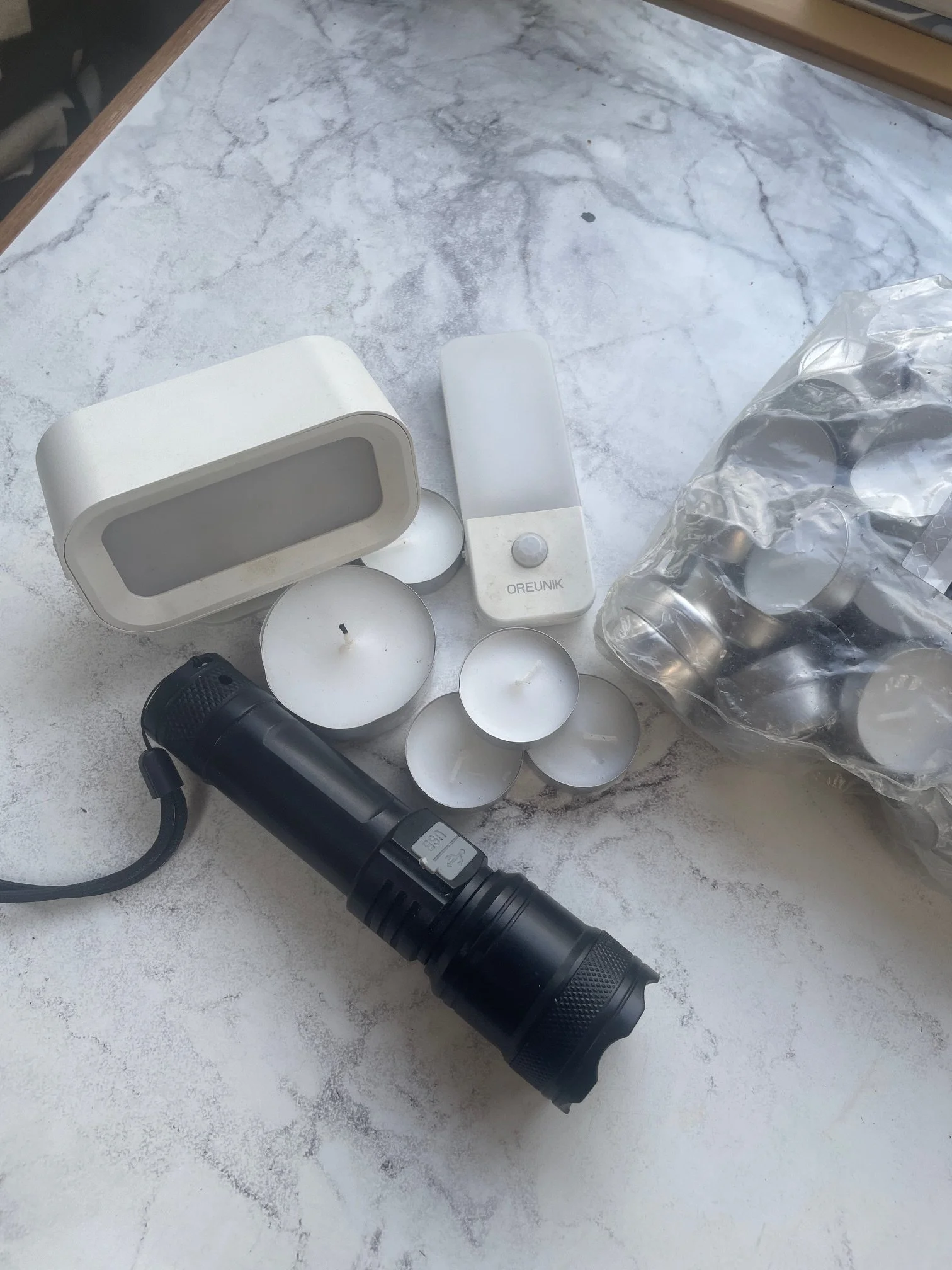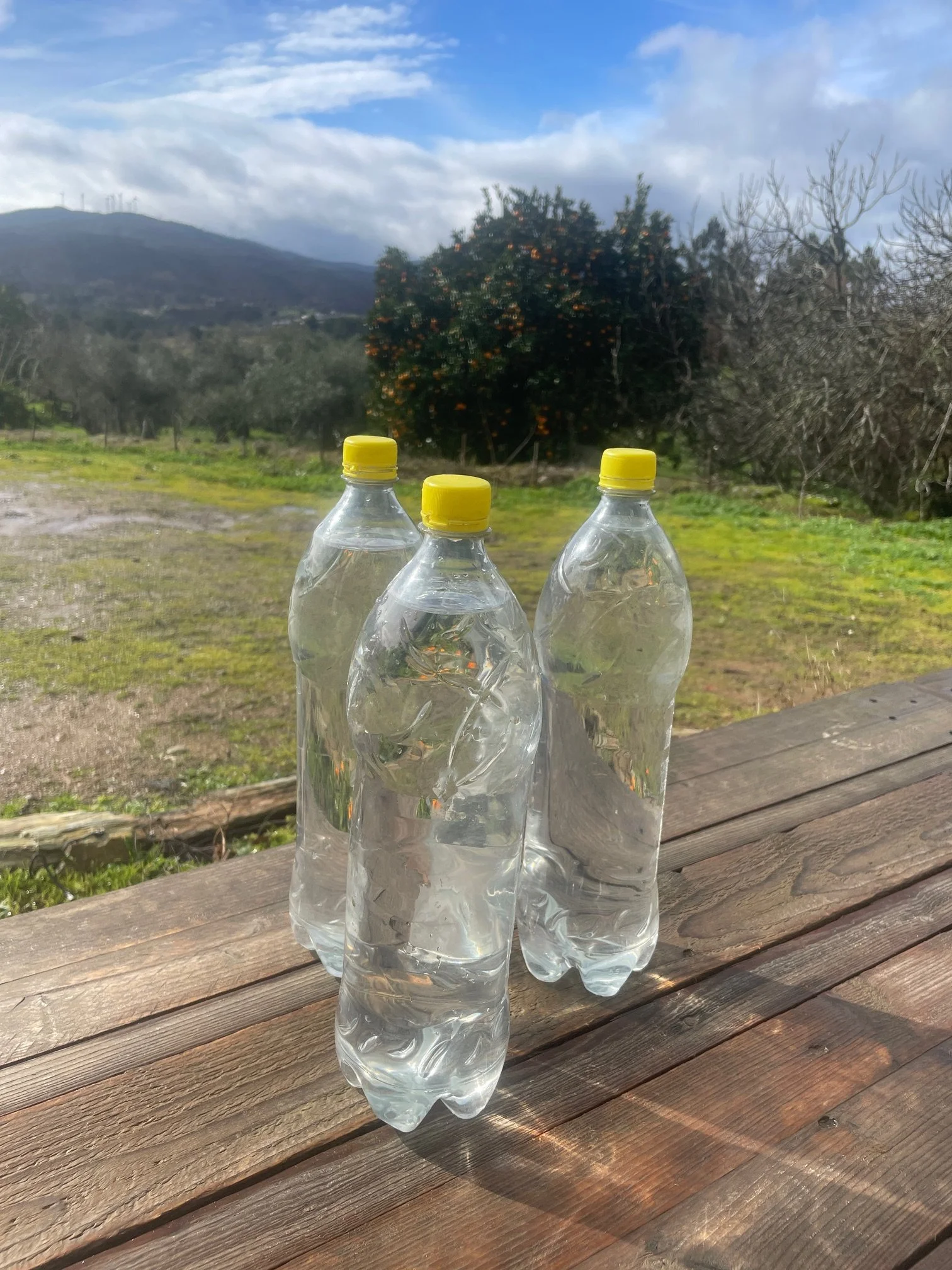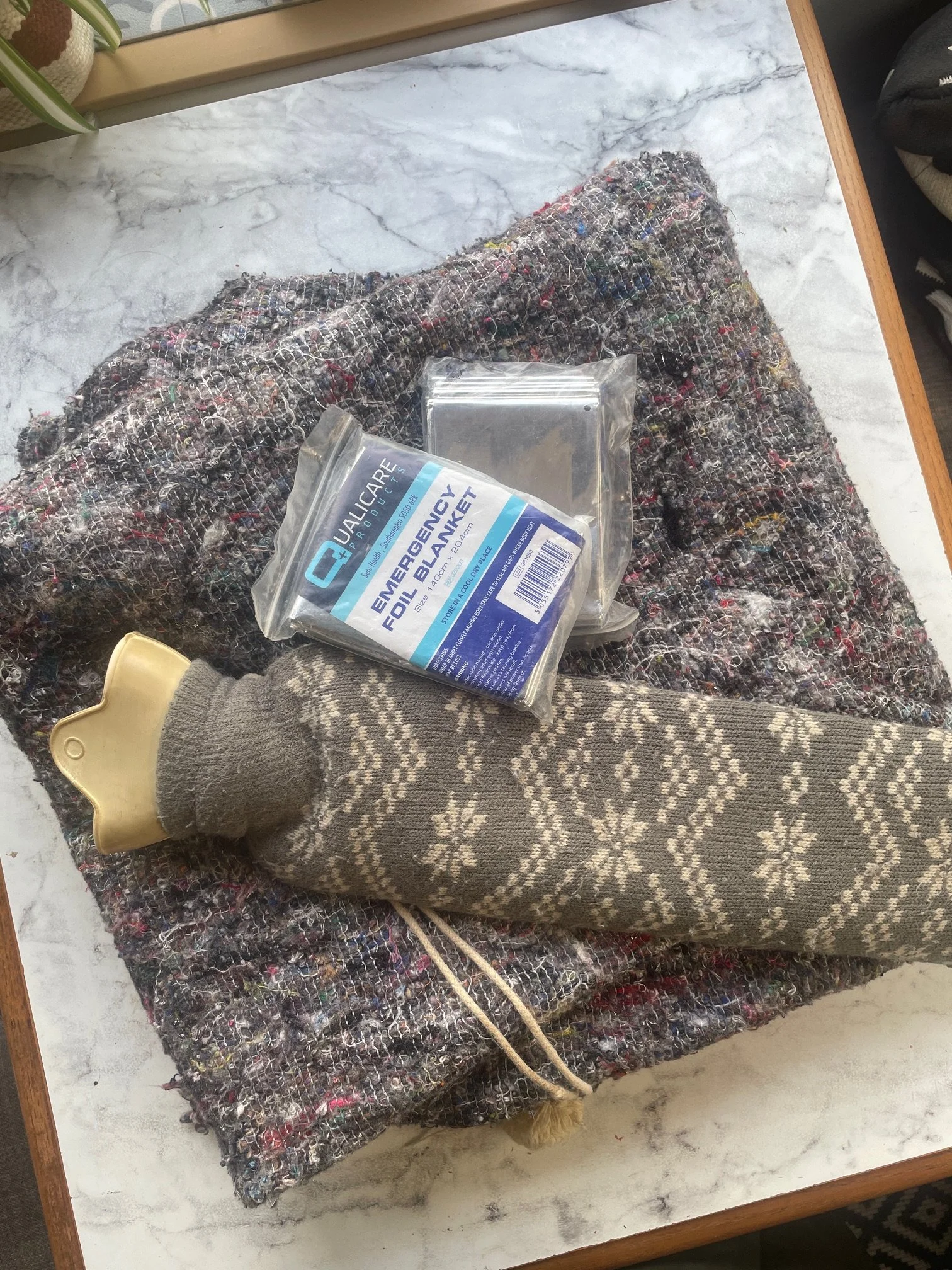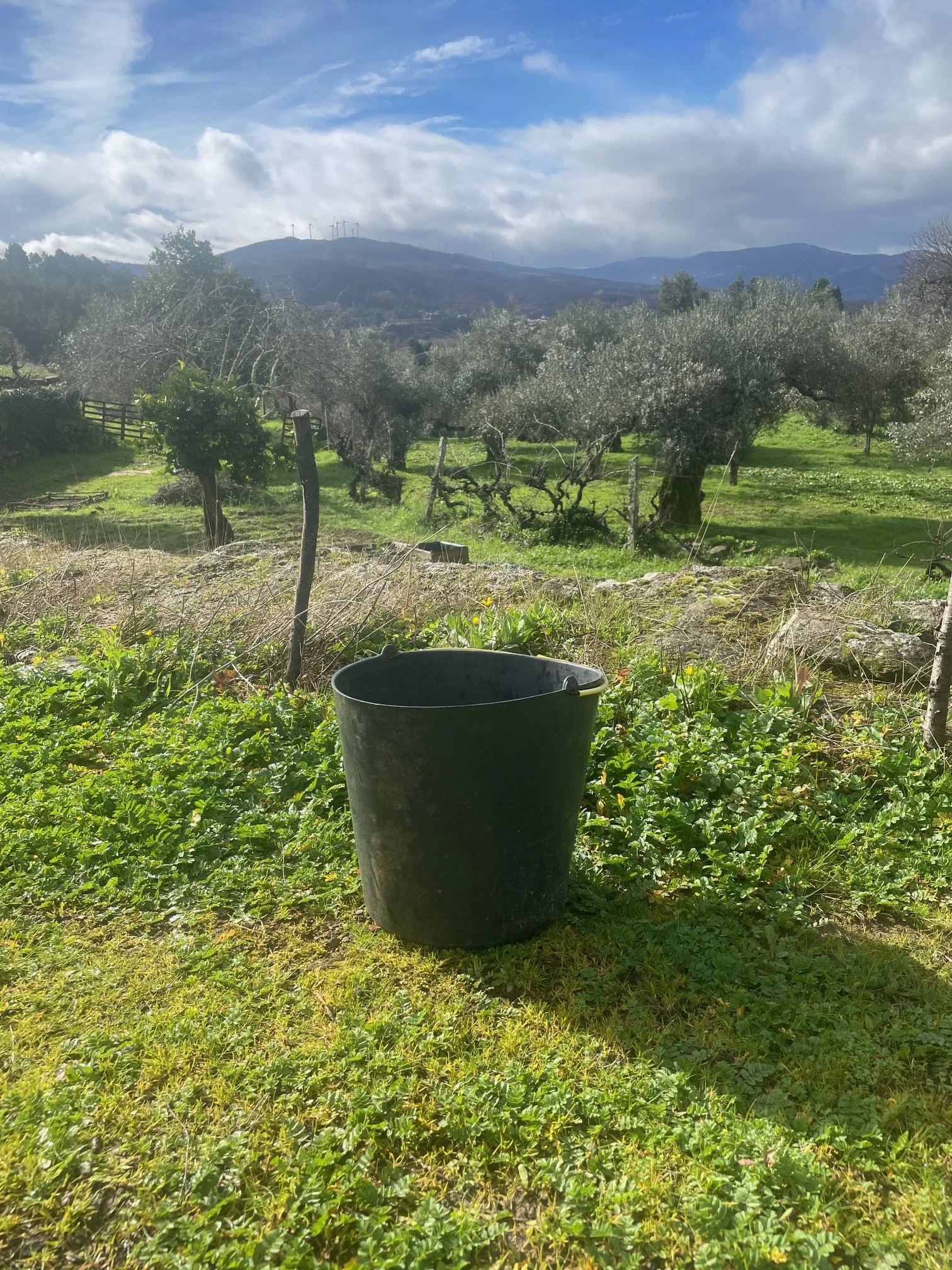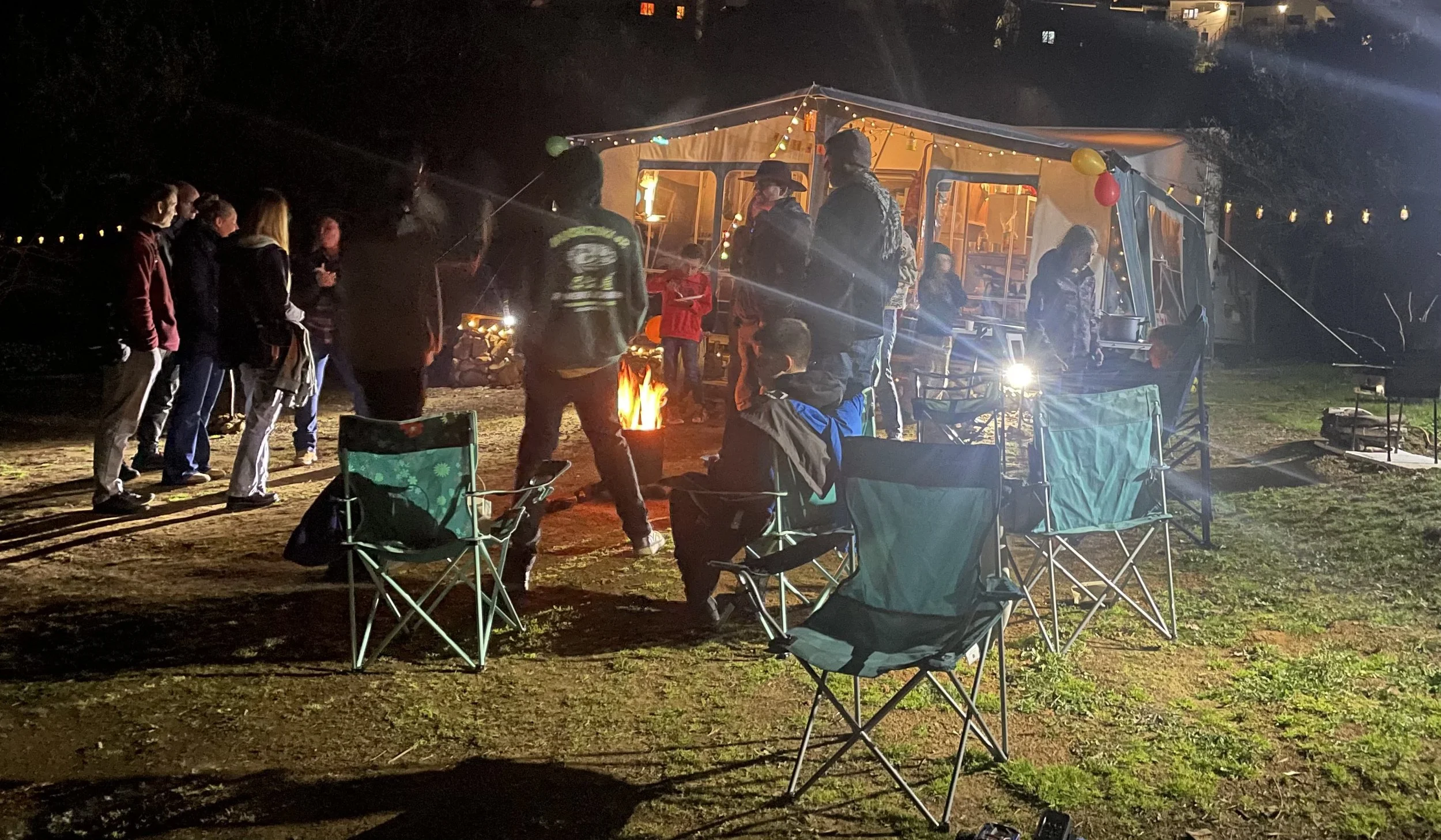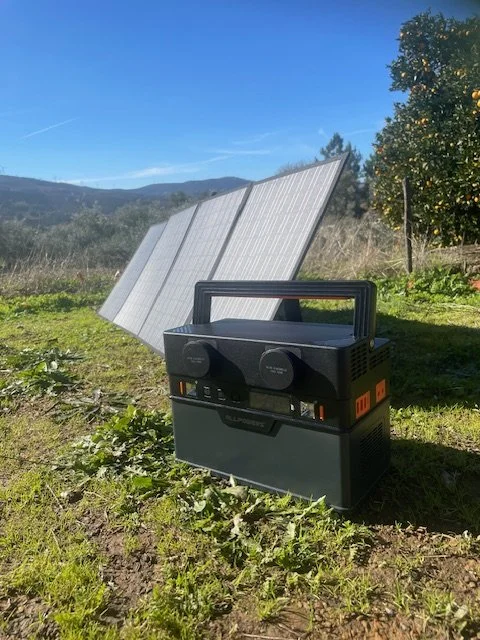How to Survive a Blackout : What You Really Need
There have been mass power cuts all across Portugal during the storms at the beginning of 2026.
Portugal, Spain, and other parts of Europe experienced some of the worst blackouts in history in the spring of 2025. Cities went dark: shops closed, petrol stations shut down, cash machines stopped working, internet connections failed—and even water supplies were cut off.
Living off-grid and building a self-sufficient lifestyle meant we were largely unaffected by these events.
But for most, the sudden loss of power meant losing access to basic survival needs—water, food, heat, communication, and transport.
While a short outage might be just an inconvenience, a longer one can quickly become a serious challenge. It’s got us wondering if there could be more to come. For years, both mainstream and “alternative” media have hinted at this possibility. If it happens again, being prepared can make the experience far less stressful.
From spending six months travelling in a camper to nearly a year living fully off-grid in our caravan, we’ve learned the essentials for surviving without power, water, or phone signal—from essentials to comforts.
So we’ve put together a blackout survival checklist—we hope you find it helpful!
1. Stay in the Light: Lighting Essentials
When the lights go out, your first priority is being able to see your way around safely. Candles and matches are handy, but also consider:
Torches (including wind-up models)
Headlamps (great for hands-free use)
Rechargeable or battery-powered lanterns
Pro Tip: Store them in easily accessible spots so you’re not hunting for them in the dark.
2. Keep the Essentials Flowing: Food and Water
Access to clean water and safe food is crucial during longer outages. Now might be a good time to build up your emergency supplies.
Water: Aim for at least one gallon (about 4 litres) per person per day—more in hot climates.
Food: Stock non-perishable items like canned beans, pasta, peanut butter, and granola bars.
Manual can opener: Electric ones won’t help now!
Bonus Tip: A small gas camping stove with spare canisters can be a lifesaver. It’s all very well having food stores—but if you can’t cook anything, they’re not much use.
3. Stay Warm
Blankets, sleeping bags, warm clothes, and hot water bottles are great for keeping warm. We also keep foil emergency blankets in our camper in case we get stranded in the cold.
We’ve even built an off-grid heating solution using candles under terracotta pots, which radiate a surprising amount of heat.
Layering clothes and blocking drafts can also help conserve warmth indoors.
4. Toilet Solutions
As we saw this week, running water can be affected in a blackout—and while it’s not the most pleasant topic, someone will eventually need the loo!
Consider not only where you can go, but what you’ll do with the waste. Peeing is easy (especially for guys), but needing to poo without a flushing toilet can be genuinely stressful (yes—we’ve been there!).
A simple bucket or camping toilet can work as a makeshift composting loo
Soil can be used as an alternative to sawdust
Or even a basic hole in the ground
Just be mindful of where and how you dispose of waste—especially if bin collections are suspended for a while.
5. Lean on your community
Create a SHTF (Sh*t hits the fan) plan so you can support each other and share resources together. Why not set a meet-up time and location in case signal goes down and you can’t contact each others.
6. Invest in a back up power bank!
We use and love the ALLPOWERS S700 Solar Generator and SP029 Solar Panels for assisting with essential power needs. A portable power station like this is not only great for camping and adventures, but is a game-changer during black outs and emergencies.
This one even lights up in the dark, so a great additional light source if you’re caught when the power is down!
Visit ALLPOWERS Online shop here
You can also get an additional 10% off all items from the ALLPOWERS store using our code: ourlifeourpath at the checkout (sales items included)!
Final Thoughts
You don’t need to become a hardcore survivalist to get through a blackout. With a bit of planning and a few essential items, you can keep your household safe, comfortable, and connected—and make the whole experience far less stressful.
Here are a few extra items that can make a big difference in a prolonged outage:
First aid kit
Cash (ATMs and card machines may be down—though only useful if shops are open)
Emergency contact list (written on paper)
Radios or long-range walkie-talkies to stay in touch with family and friends

